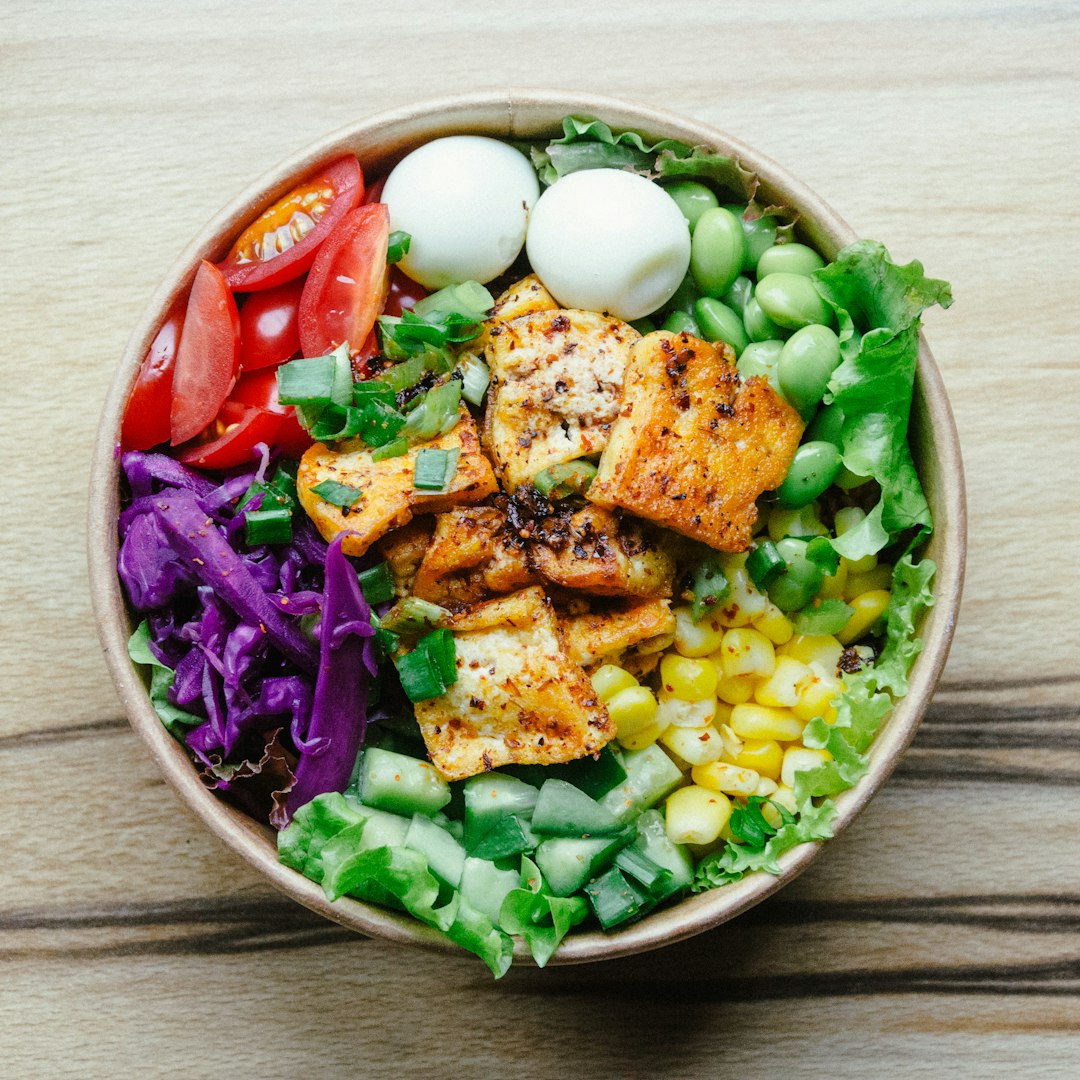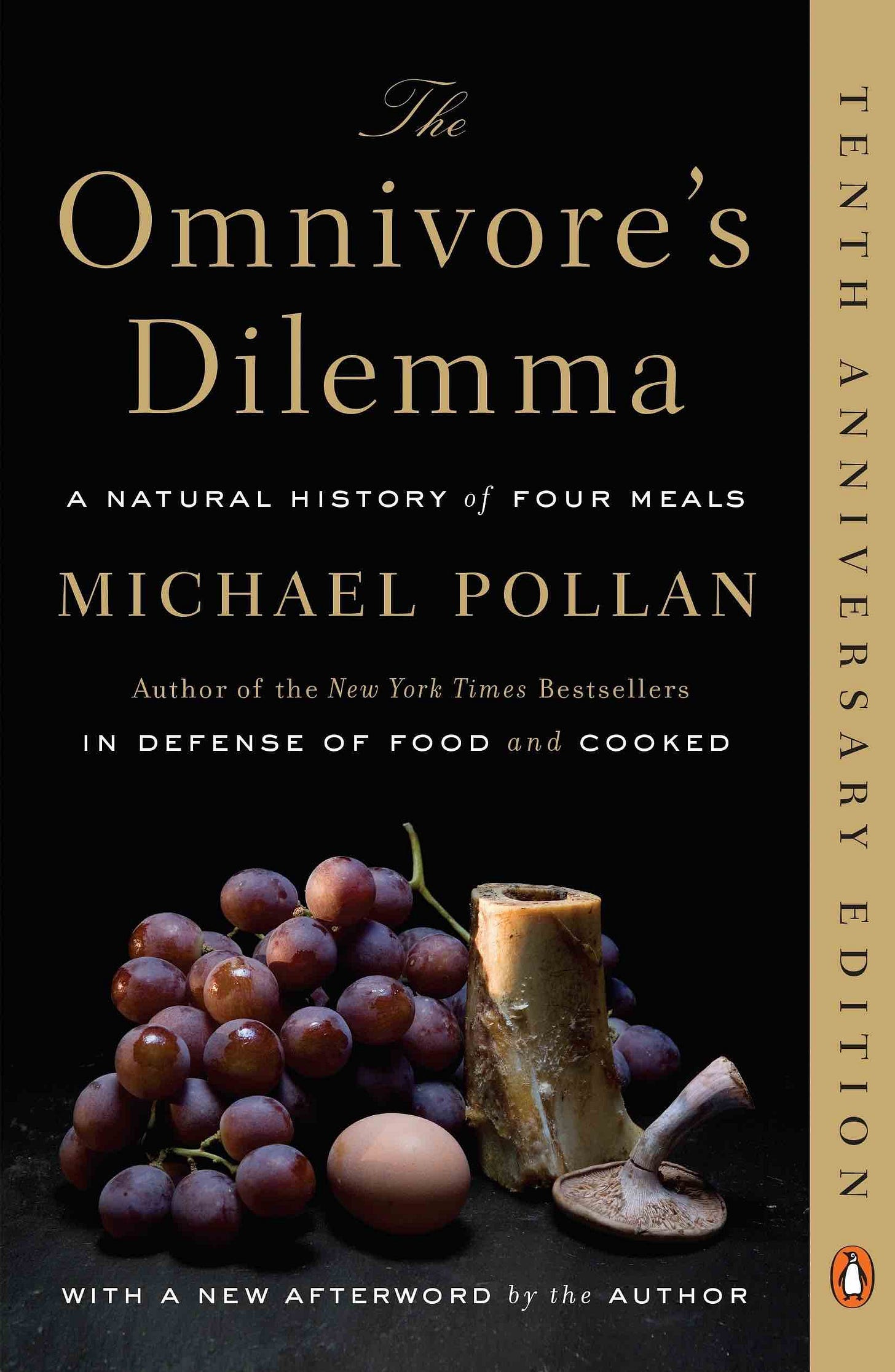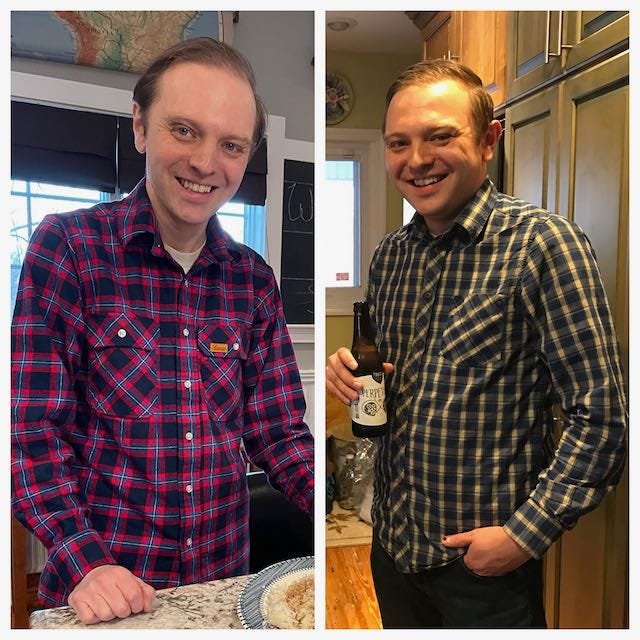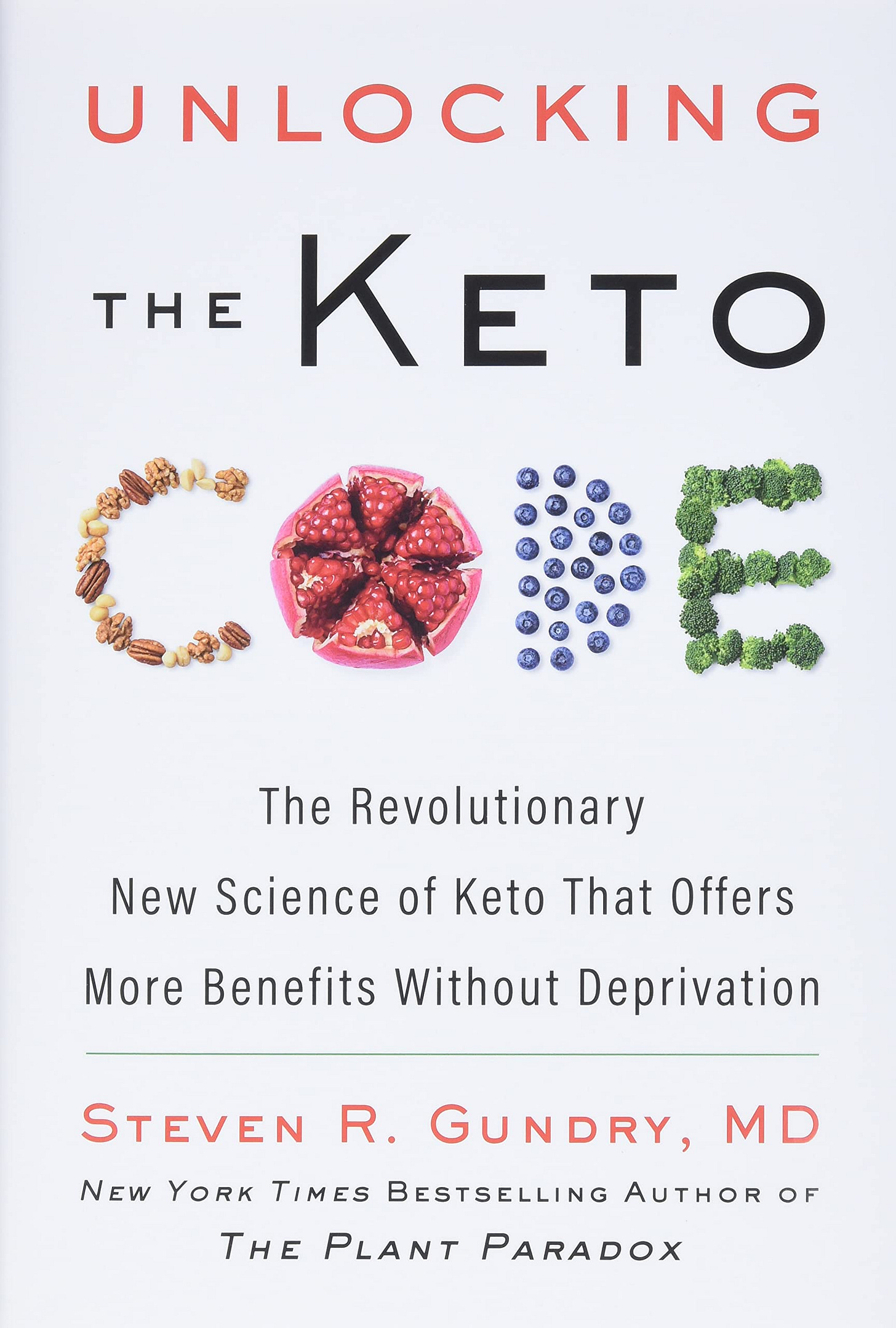A Diet That Works! (*at least for me)
Speaking with Dr. Steven Gundry about my family's experience with his Plant Paradox diet over the last six months.
Good morning and welcome to the Quarantine Creatives newsletter, a weekly companion to my podcast of the same name, which explores creativity, art, and big ideas as we continue to live through this pandemic.
If you like what you’re reading, you can subscribe for free to have this newsletter delivered to your inbox on Sundays:
In today’s issue, I look back on my interview from last week with physician, author, and podcaster Dr. Steven Gundry about how the foods we eat affect our health.
Health Food Isn’t Necessarily Healthy

What do you think of when you think of health food? Probably something like this salad. The colors of the rainbow are all in there. There’s tofu, soy beans, corn, and even fresh tomatoes.
What if I told you that some of the foods in that salad could be making you sick in ways you don’t even realize?
I’ll explain why Dr. Steven Gundry, my guest on the podcast last week, thinks there’s danger lurking in our food a little later, but first, let’s discuss America’s uneasy relationship with food. Dietary choices are complicated, partially because nobody seems to know what good food really is.
The role of food marketing has a strong impact on what we eat. Many of us can still sing 30 year old Fruity Pebbles commercials, have a strange nostalgia for when Pepsi was clear, or quoted the brief catch phrase “¡Yo Quiero Taco Bell!” for longer than we should have.
But our nutrition education wasn’t only taught on TV commercials. My generation also studied the food pyramid in school, which showed that the foundation of a strong diet was breads, cereals, rice, and pasta. There was no distinction between lard or soybean oil and extra virgin olive oil- all fats were to be used sparingly. Vegetables, eggs, and cheese ambiguously fell somewhere in between.
It never occurred to us that those “amber waves of grain” of the heartland might have an interest in selling us more bread. Or that sugar-laden cereal wasn’t the best way to start the morning because, well every commercial told us that it was.
“This complete breakfast including the sweet crunch of Kellogg’s Frosted Flakes,” the voice-over from a 1992 ad says as we see a bowl of Frosted Flakes, a plate of toast, an orange, and a carton and glass of milk.
As I was maturing into adulthood in the early 2000s, a number of books and films were beginning to shine a light on the problems with our food system. Fast Food Nation and Supersize Me had me abstaining from McDonald’s for a long time.
But Michael Pollan’s The Omnivore’s Dilemma, first published in 2006, had perhaps the longest lasting impact on me. Pollan described in vivid detail the challenges with modern agricultural methods, especially in meat production, and also the viable alternatives. His more than 400 pages of prose are revelatory, but the biggest takeaway can be summed up in seven words:
"Eat food, not too much, mostly plants."
By “food,” Pollan didn’t just mean any food. He was distinguishing ultra processed foods like cereals and potato chips from whole foods like fruits, vegetables, or meats.
After reading Pollan, my wife and I both tried to eat “healthy” foods- our diets were rich in tofu, legumes, hummus, and fresh crops like tomatoes, eggplant, and squash.
Even eating “healthy,” we were gaining weight, but we also had young kids and were getting older, so we didn’t think much of it. Our metabolism was probably just slowing down. But we figured we were healthy overall.
And then my wife got cancer.
A Lightbulb Moment
When my wife was diagnosed with thyroid cancer in early 2019, it was nearly impossible to believe. We barely ate red meat, drank soda, or ate fast food. Was there something in her family history that caused this? Did we live too close to the highway? Was there something toxic in our drinking water?
My wife had half of her thyroid removed in the summer of 2019 and was put on a synthetic hormone to balance out what her thyroid was no longer producing. We went about our life, eating our usual diet.
But something about being diagnosed with cancer in her mid-30s didn’t sit well with her. Beyond cancer, she suffered from other health problems like food poisoning-like symptoms every few weeks and kidney stones. Her doctors explained things away, or offered her prescriptions to fight symptoms.
One day, she listened to an episode of Jay Shetty’s podcast On Purpose where Jay’s guest was Dr. Steven Gundry. Suddenly, we had some answers.
Dr. Gundry explained in that podcast (and later when we read his book The Plant Paradox) the importance of our gut microbiome. Our guts are filled with millions of microbes that aid in digestion. Well, at least, they used to be.
According to Dr. Gundry, we have been killing these microbes by consuming food that contains glyphosate (the main chemical in the herbicide Roundup) and antibiotics, primarily administered to the livestock we eat to keep them alive on feedlots.
Many of these ideas were right in line with people like Pollan, so my interest was piqued upon reading Dr. Gundry’s work.
What was new to me though was Dr. Gundry’s explanation of lectins. Lectins are a substance that plants produce as a defense mechanism (because plants can’t run from a predator or fight them off with claws or fangs). These lectins are higher in some plants than others and they can make us sick.
Our ancestors were aware of lectins, even if they didn’t have a name for them, and often used preparation techniques that removed the lectins from foods like peeling, de-seeding, or even fermenting. Our gut microbes used to help our ancestors fight off lectin attacks too.
Getting back to that salad pictured above, tofu and corn were traditionally fermented before eating and tomatoes were peeled and de-seeded, reducing or eliminating the lectins. When we forgo those time-honored techniques, we get more than we expect from the food we’re eating.
And as we continue to eat chemical-laden foods, we destroy the gut microbes that would help us fight off these lectins. It’s a real one-two punch!
What Do You Eat?
The first and most important rule on the Gundry diet is “what you stop eating has far more impact than your health than what you start eating.”
Dr. Gundry went into more detail about this on my podcast, comparing inflammation (the cause of so many other health issues) to wildfires:
“Trying to fight a wildfire with a garden hose is equivalent to eating anti-inflammatory foods when you’ve got wildfire inflammation raging through your body.”
My family and I have eliminated all gluten (flours, wheat pastas, breads), sugars, most fruit, and any conventionally raised supermarket meats and eggs.
We have replaced these with alternatives like almond, cassava, and arrowroot flour and sweeteners like monkfruit. Our pastas are now made from millet or cassava, and we eat more vegetables than before. Our meats and eggs come from local farms that use traditional farming methods, as I’ve described in past newsletters.
I still drink coffee every day. We can still enjoy most alcoholic beverages (beer being the biggest exception). We have found viable recipes that allow us to enjoy crackers with cheese, sans the gluten.
Is It Worth It?
I’ll admit that some of this sounds completely crazy, probably because it is so removed from what conventional food companies, government officials, and health care professionals have ingrained in us as the truth.
Dr. Gundry explained to me on the podcast that there is a big overlap in multiple industries that have created a distorted view of what it means to be healthy:
“Sadly, if you look actually at the board of directors of most major medical schools, most major agribusinesses, and most pharmaceutical companies, they all intertwine. And this was an expose by the New York Times a few years ago and it’s actually shocking that these three pillars would commingle and, in a way, sickness is really good for lots of businesses. You used to go to the hospital because you were sick. And now we have these sprawling health care systems that the last thing they’re interested in is health.”
When I first read The Plant Paradox, frankly, I was skeptical. I also had nothing to lose from trying Dr. Gundry’s diet, knowing that if it wasn’t working for me, I could simply go back to my old ways at any point.
I have never been overweight, but I also never noticed just how “puffy” I was before this diet. Dr. Gundry described that puffiness it as a classic sign of inflammation. After eating this way for six months, I lost probably 25 pounds, including my entire beer gut. I also notice more muscle mass than I’ve ever had. I have energy and feel better overall.
Perhaps more impressive are my wife’s results. After only three weeks, she felt a change in her body and asked her doctor to run blood work. Her doctor recommended cutting her thyroid medication dosage in half. Three weeks after that (six weeks into the diet), she had bloodwork taken again and was advised that she could discontinue her thyroid medication altogether.
We’ve seen positive results in our kids too, including eczema disappearing, digestion issues no longer being a problem, and easier and longer periods of sleep.
(Side note: if you’re interested in learning about some of the foods that we now eat and how they’re made, my wife has started a YouTube channel and Instagram account chronicling the recipes that she’s adapting to allow our family to still largely eat what we like, while enjoying health benefits.)
I mentioned to Dr. Gundry on the podcast that I like the adaptability of this diet. For my wife, it’s all about feeling healthy. For others, it may be about weight loss. For me, I appreciate the focus on foods that can often only be found at local farms, like organic vegetables, in-season fruit, or pastured meats. There’s even versions of his diet that are vegetarian or fully vegan.
Eating this way has meant a shift in how we shop and cook, but the changes in our health are well worth the effort. My wife recently said that this isn’t a “diet” but a “lifestyle,” and I agree with that. Diets are so often about deprivation and they rarely last. Given the results that we’ve seen in this short time, we expect that this will be a permanent change.
I was surprised and humbled when I reached out to Dr. Gundry and he was willing to be a guest on my podcast. If you’re interested in learning more, I highly recommend taking a listen to our conversation, as well checking out The Plant Paradox and his latest book Unlocking the Keto Code, which can give you the same effects as a keto diet without the challenges that usually come from trying to eat that way.
Your Turn!
I’d love to hear from you! What did you learn about nutrition growing up that you had to unlearn as an adult? What motivates your choices in food? Would you ever consider trying a diet like this? Leave a comment and let’s start a conversation!
If you’d like to catch up on past episodes of the Quarantine Creatives podcast, they can be found on Apple Podcasts, Spotify, or wherever you listen.
Please consider sharing this with a friend that you think might enjoy reading this, or better yet, share it on social media so you can tell hundreds of friends!
If you’ve missed past issues of this newsletter, they are available to read here.
Stay Safe!
Heath











Sincerely not trying to pick a fight, but I wondered if you'd listened to the Maintenance Phase episode about Michael Pollan? I found it demoralizing how chill he seems to be about platforming someone like Joel Salatin without any concern for his white supremacist views. (Honestly, I'd love your take on most of their episodes!)
https://maintenancephase.buzzsprout.com/1411126/10367336-michael-pollan-s-the-omnivore-s-dilemma